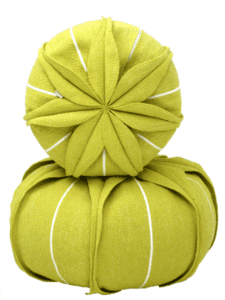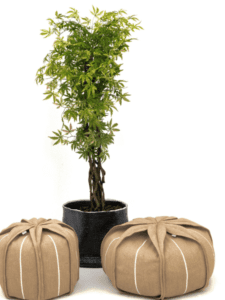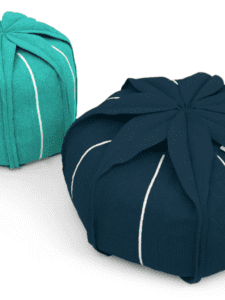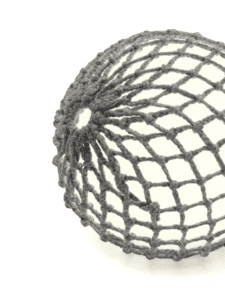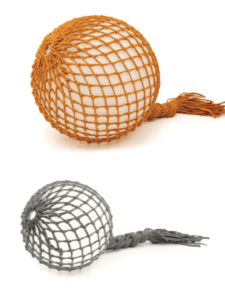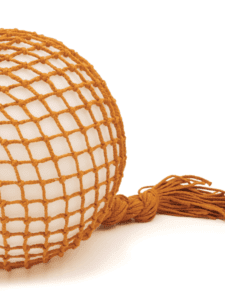From past to future, Darono's narrative unites tradition, innovation and sustainability
Darono is a brand that evokes the passion for manual textile creation, and appears as a tribute to family roots that intertwine history and innovation.
In the picturesque setting of northern Portugal, specifically in Viana do Castelo, a name gained life and meaning, rooted in tradition, craftsmanship and a vision for a more sustainable world. To Darono, a brand that evokes the passion for manual textile creation, appears as a tribute to family roots and the journey of a company that intertwines history and innovation.
Darono's story is woven from the fibers of a family business with more than 35 years of experience in the textile industry, recovering industrial waste in the creation of utilitarian pieces for the home, in a process that today we call upcycling. Choosing the name, “DAR-O-IT,” reflects an ardent devotion to crafts and textile manuals. This choice is not accidental; is a manifestation of Darono's commitment to respecting tradition, create exceptional products and, at the same time, embrace a more sustainable approach.
Because Darono is a project within a group, it appears on the market as an independent brand, with new proposals that satisfy new segments and new markets, without forgetting the synergies of a global structure where. Naming the company may be distracting to Darono's new audience, but the history of the mother house is part of the knowledge that gives rise to the perfect youthfulness with which Darono operates.
Catarina Carvalho's parents' company, founder of Darono, started in 1985, the two alone initially. My mother learned the art of weaving from 14 years and was fascinated! He was born into a large family and had the habit of tearing old rags into strips and taking them to a neighbor., who had a loom, for weaving carpets. Both brand new, the parents, with 20 , 22 years, created their own company. A carpenter built his mother's first loom, and knocking on the doors of textile companies to rescue the waste they threw away was the method used to obtain the raw materials for their masterpieces. They were pioneers in upcycling even before the word existed. They grew from loom to loom and today they have 35, as many as its years of existence.
At the end of this time, it was with the desire to bring new light, Darono brings innovation to this practice, focused on the macramé technique, braid the yarn before working it, apply extra treatments to outdoor, directs attention to textile furniture pieces, and treads new paths in a market segment predominantly in the hotel industry. Maintaining the essence of recovered materials and a philosophy that favors non-virgin materials, and keeps avoiding disposal and creation of waste.
Since its foundation in 2013, to Darono has made creative ripples in the furniture and decoration industry. The company has a clear and sustainable vision, which involves the production eco-friendly of textile furniture from materials upcycled and recycled. This not only challenges conventional production practices, but also aligns with a more conscious mindset about the environment and social responsibility. It is clear, incorporates an appropriate design line.
Darono's diverse range of products embraces the individuality of each piece, as it produces interior furniture and accessories for a variety of spaces, from residential and commercial. Categories include rugs, poufs, modular sofas, lamps, cushions and even unique textile installations, such as macramé hammocks for pergolas and room dividers.
Darono's creative process is a skillful balance between research, innovation and collaboration. The origin of raw materials is a clear example of how the company takes an active role in reducing industrial waste. Collecting waste from textile industries in Portugal, Spain and Central Europe is just the starting point. These wastes are then transformed, through artisanal techniques, in custom parts, flexible and functional. Co-creation with customers is a vital part of this process, allowing Darono to adapt to the specific requirements of each project.
Darono's approach to sustainability is a story of materials upcycled and creative reimagining. From waste from linen production, cotton and synthetic fibers, the potential to create something new and valuable is born. Furthermore, the company uses wood, stainless steel and even recycled styrofoam, highlighting its commitment to the intelligent reuse of resources.
Darono is not just a furniture producer; is an ambassador of traditions. With an artisanal approach to production, the company maintains a passionate respect for detail. Like all structures of this kind, faces the ongoing challenge of attracting and nurturing talent who share this love of craftsmanship, since the art of creating by hand requires dedication, patience and incessant curiosity. Artisanal production, unlike automated production, is a platform for unlimited experimentation with time-consuming innovation, which is sometimes scarce. Design is the way the brand responds to this challenge using it as a central piece that unites all Darono elements. It is the bridge that connects tradition to modernity, the past to the present, the ability to see. Each piece, created with care and skill, is a testimony to the heritage and affirmation with complementarity.
Darono is not just a name; It's an intertwined story of passion, tradition, innovation and sustainability. Your journey from family roots to creating exclusive, environmentally conscious pieces, is an inspiring testament to how tradition and creativity can come together, to shape a better future.
Darono is a Portuguese brand referenced in Maps Portugal Does Good from may Brands with all your Contacts and Technical Data Sheet. Also find out which Sustainable Development Goals the Darono elected as priorities.


